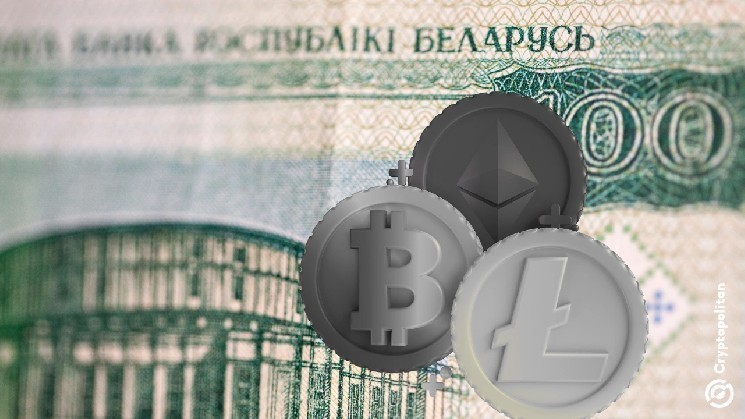Belarusian President Alexander Lukashenko classified cryptocurrencies as one of the possible means for the world to wean itself from dependence on the US dollar.
The president’s remarks were made while attending a government meeting held to discuss the performance of Belarus’ nuclear power plants, increases in electricity consumption and proposals for new nuclear power capacity.
Lukashenko believes in cryptocurrencies to escape dollar dominance
The President requested a report on the measures taken to increase electricity consumption and the results, as well as proposals for further development of the electricity industry and related sectors.
In his comments, Lukashenko directly highlighted global de-dollarization efforts, calling it a “global problem” and pointing to things like crypto mining as potential solutions. “The focus is on the prospect of leveraging existing and new capabilities,” the head of state said.
Regarding concerns related to cryptocurrency mining, particularly how volatile it is, the president hinted that this is a sacrifice worth making as the world struggles to distance itself from the dollar. “This process will intensify,” Lukashenko said. “So why are we so worried? There will be some fluctuations…well, probably. But nothing ventured, nothing gained.”
Belarus, which Lukashenko presides over, is a close ally of Russia and is one of the countries seriously engaged in fighting the dollar’s dominance. China has aggressively de-dollarized its trade, reduced its US dollar holdings and is currently exploring alternatives such as the BRICS payment system and, if Lukashenko’s comments have anything to do with it, cryptocurrencies.
Lukashenko has always encouraged mining in Belarus
Lukashenko’s comments on mining come weeks after he asked the country’s regulators in September to finalize long-delayed rules on cryptocurrencies and digital tokens.
Lukashenko complained at the time that the 2023 directive to develop comprehensive regulations had not yet produced an approved document and called for “transparent gaming rules” and new monitoring mechanisms, without which he believed Belarus would fall behind in global cryptocurrency adoption.
The President also emphasized that technology is advancing faster than law, creating pressure on new areas of law. He instructed regulators and Hi-tech Parks, the special economic zones that oversee much of Belarus’ digital economy, to share responsibilities and devote their expertise to drafting rules that reassure domestic and foreign companies that they can “work calmly in a digital paradise.”
These comments came months after Lukashenko publicly considered other ways to expand Belarus’ role in cryptocurrencies. In March, he raised the possibility of using the country’s surplus electricity for digital asset mining. “Look at this mining. More and more people are turning to me. If it benefits us, let’s do it,” he is said to have told the newly appointed energy minister.
Referring to developments in Washington, Lukashenko called attention to the fact that the White House has introduced the concept of a strategic crypto reserve. “You can see the way the world is going, especially with the world’s largest economy announcing yesterday that it will maintain (cryptocurrency) reserves,” he said.
Belarus would not be the first country to consider exploring such a path. Countries such as Bhutan and El Salvador have embraced Bitcoin mining and BTC as a strategic reserve asset. Belarus could greatly benefit from an electricity surplus, but regulators must give the green light.
Already, the Decree No. 8 “On the Development of the Digital Economy” signed on December 21, 2017 has established a framework for digital assets to flourish in Belarus under the umbrella of high-tech parks, which is attracting foreign blockchain startups.
This Decree formally recognized digital tokens in Belarusian law and created a legal basis for their issuance, circulation and exchange.
The Decree also provided tax exemption on digital asset transactions for companies and individuals operating within the HTP and recognized the validity of smart contracts. All these measures place Belarus as one of the first jurisdictions to adopt a state-sponsored framework for virtual currencies and blockchain services.


